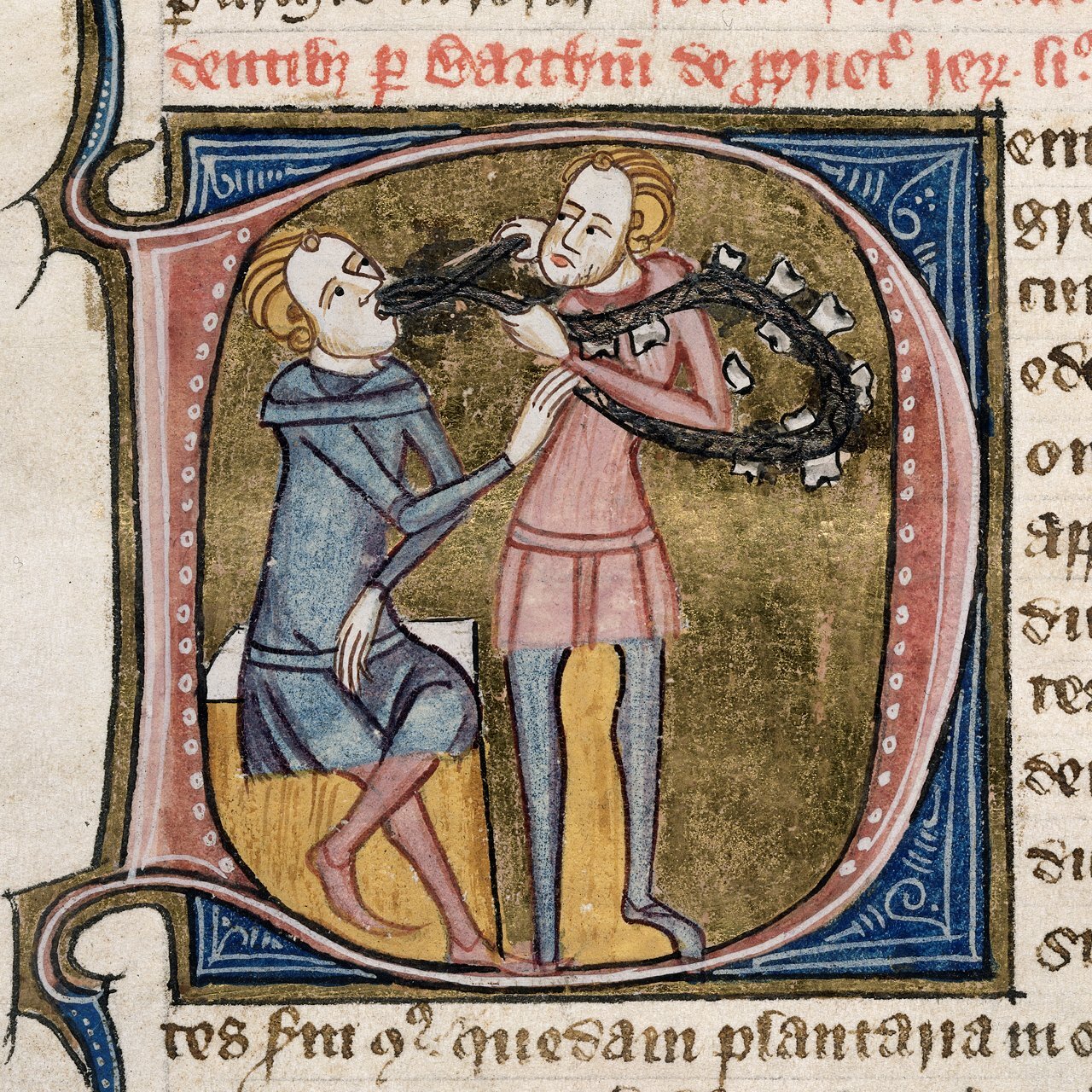Believing in Health

In your average medieval fantasy setting, most of us take one thing for granted: most of your healing comes from religious people. Healing, be it magical or otherwise, tends to be associated with the priests, the paladins, and the spiritual folk.
A little more than four years ago, Eris Lis, M.D., began writing a series of brilliant and informative posts on RPGs through the eyes of a medical professional. Following is the fifth of them, which appeared here on January 5, 2013.
In your average medieval fantasy setting, most of us take one thing for granted: most of your healing comes from religious people. Healing, be it magical or otherwise, tends to be associated with the priests, the paladins, and the spiritual folk. When it isn't the clerics, it tends to be the wise women, the ones who are in touch with nature... the druid-y sort, not to put too fine a point on it. That's actually kind of funny when you think about it, because for a lot of human history, the healers weren't the religious people. Many of the great healers in history, particularly around the eras that most game worlds parallel, were men of science who were often rather skeptical of faith-based cures. Granted, in the Western and Christian world, nuns and the like played a major role in health care, but not so much the priests... with the obvious exception of the exorcists, who are noted, even in period records, to have been perceived as being of limited value for many ailments. Whatever the case, in our games, we take it as a given that when we need our wounds closed, we find a cleric. Here's a question, then: if health and healing are inextricably linked to religion in our games, where does your average townsperson's own religiousness fit in?
When someone falls ill in Western culture, it's common to hear someone say that they'll pray for the sick person. For that matter, plenty of sick people will pray for themselves. Does it make a difference? As it happens, scientists have been trying to study that question for years, with rather mixed results. Some of the mixed results are because we don't have any very good measures of "religiosity," or the equally tenuous "spirituality." Others are because it's hard to get good samples of people who have similar religious backgrounds and beliefs so that they can be compared. Still, mixed data is usually better than bad data. Here's some of what that data has shown, just from recent years.
First off, on the physiological level, higher levels of religiosity and increased spirituality are associated with better health in general. This has been shown particularly with the cardiovascular system and for measures of the immune response. In contrast, it doesn't seem to be associated with greater survival in cancer. Greater religiosity has been associated with lower rates of chronic pain disorders, and better coping with pain when it develops. Religious people seem to heal faster after undergoing surgery, but the same can be said for people who have happier marriages or less financial stresses. It seems to protect against depression -- unless someone's religious beliefs focus around guilt -- and seems to help people survive and thrive in the face of trauma. Religious people appear to be at lower risk of suicide, but a few studies suggest that may depend what religion you're studying. Religion might actually increase your risk of becoming psychotic during your life, but nobody has yet been able to tease apart the obvious confound, that people who become psychotic may start becoming more religious early on in the illness.
The data in this area is pretty weak, simply because collecting valuable data is so hard. In response, a number of researchers have tried to look at specific situations. For example, a study of older Israeli Jews was published in 2012 which showed that synagogue attendance seemed to protect against chronic illness and was associated with better overall daily functioning, whereas increased prayer was actually associated with poorer outcomes. You can probably see how attending worship and praying are both markers of being religious, without capturing everything that being religious means. The authors speculated that attending worship was probably linked to having a supporting community around you, whereas prayer could be used as a coping mechanism, perhaps even a crutch, so that people didn't seek help or solutions for their problems. What this should probably tell us is that religion is like everything else in life: it can make us better or worse depending on how sensibly we use it.
One thing that the research definitely seems to support is that religion isn't so good for your health if it makes you refuse to go see your doctor, but seems to be better for your health if you turn to your gods in addition to your doctor. As I tell my patients, "I'd never tell you to stop praying for healing, but I think you should take your antibiotics too."
So what does this mean for your characters, who live in a world where they really may experience miracles and possibly even meet their gods face to face? The people for whom religion (or their spiritual path, or their philosophy) is a source of peace and strength probably live longer -- and better -- than other people, but it really comes down to the person.

